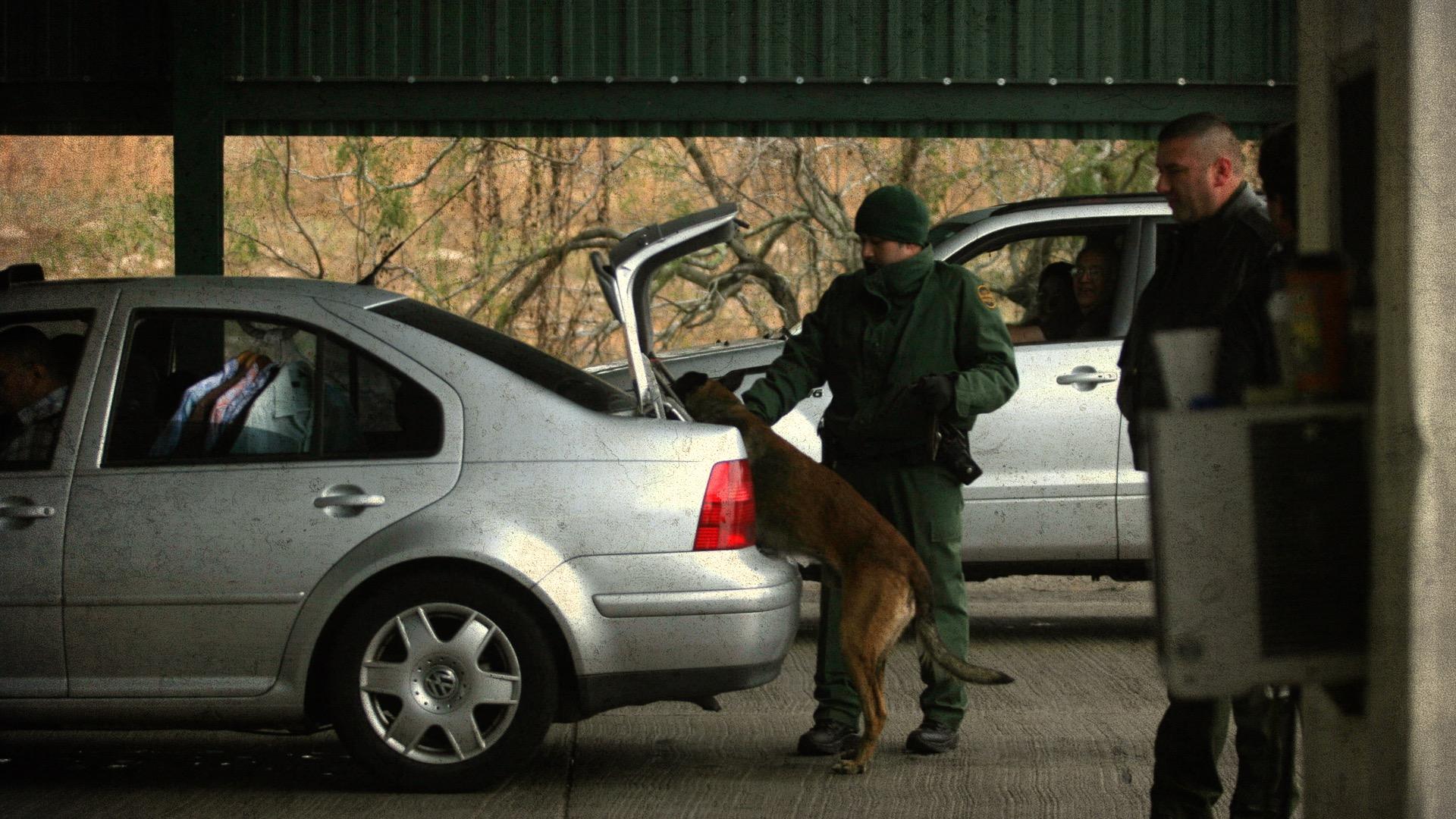Trump to send military to Mexican border
- Published
Trump: 'We will be guarding our wall with military'
President Donald Trump has vowed to send the US military to secure the nation's southern border with Mexico.
"We are going to be doing things militarily," Mr Trump said at the White House on Tuesday, adding that it would be a "big step".
Earlier Mr Trump threatened to cut aid to Honduras as a "caravan" of asylum seekers makes its way north to the US.
Both of his predecessors in the White House also deployed National Guard troops to help secure the US border.
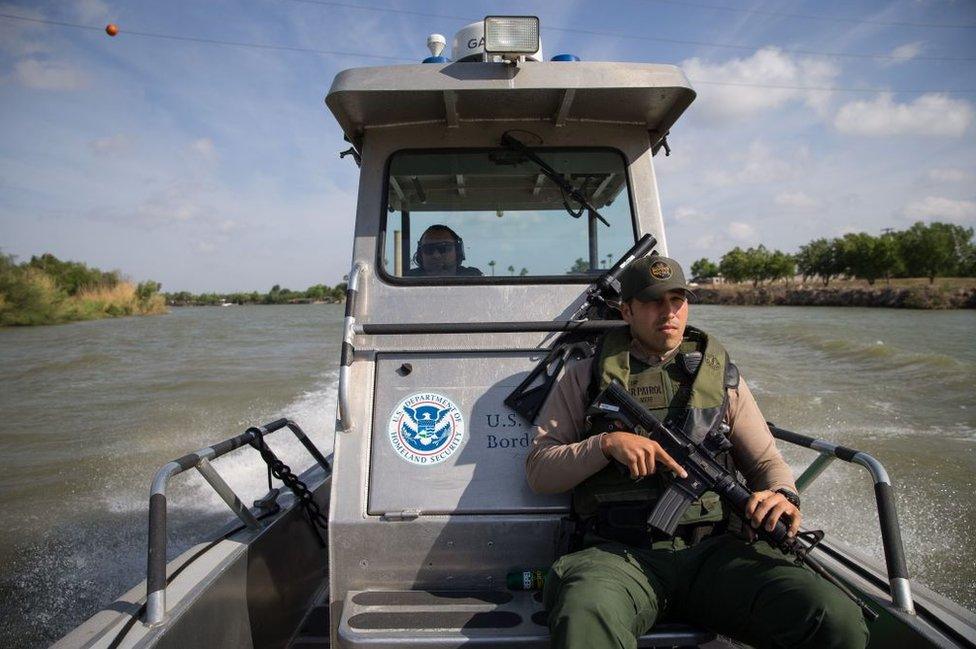
The border, including the Rio Grande River, is policed by US Border Patrol
President Barack Obama sent some 1,200 soldiers to guard the boundary, while President George W Bush deployed about 6,000 troops to help Border Patrol in what was called Operation Jump Start.
During a working lunch with leaders of Baltic countries on Tuesday, Mr Trump told reporters the North American Free Trade Agreement (Nafta) was at risk unless Mexico stopped the flow of migrants.
He tweeted earlier for the third day about the "caravan" of migrants heading north from Central America.
"The big Caravan of People from Honduras, now coming across Mexico and heading to our 'Weak Laws' Border, had better be stopped before it gets there," he tweeted.
Allow X content?
This article contains content provided by X. We ask for your permission before anything is loaded, as they may be using cookies and other technologies. You may want to read X’s cookie policy, external and privacy policy, external before accepting. To view this content choose ‘accept and continue’.
"Cash cow Nafta is in play, as is foreign aid to Honduras and the countries that allow this to happen."
The president has been tweeting about illegal immigration for the last few days, accusing Democrats of allowing "open borders, drugs and crime".
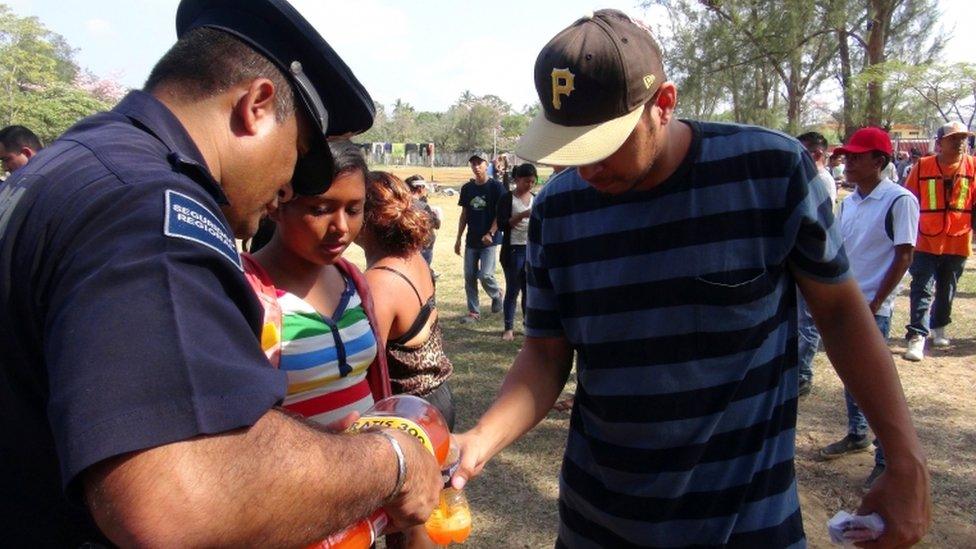
A Mexican police officer pours a soft drink for a migrant
What is this 'caravan'?
Mr Trump began tweeting on Sunday about the "caravan" of about 1,100 mostly Honduran immigrants, following a report on Fox News' morning show that used the term.
The group, which has been marching along roadsides and railways in the southern Mexican state of Oaxaca, is being organised by US-based Pueblo Sin Fronteras (People Without Borders).
The migrants gathered in the south of the country on 25 March. The Mexican government said on Monday evening around 400 of the migrants had already been sent back home.
Mexican officials told Reuters news agency they were determining whether the remaining migrants had the legal right to remain in Mexico.
According to recent reports, external, the caravan stopped at a football field as participants decided whether to continue 800 miles north to the US, return south, or seek asylum in Mexico.
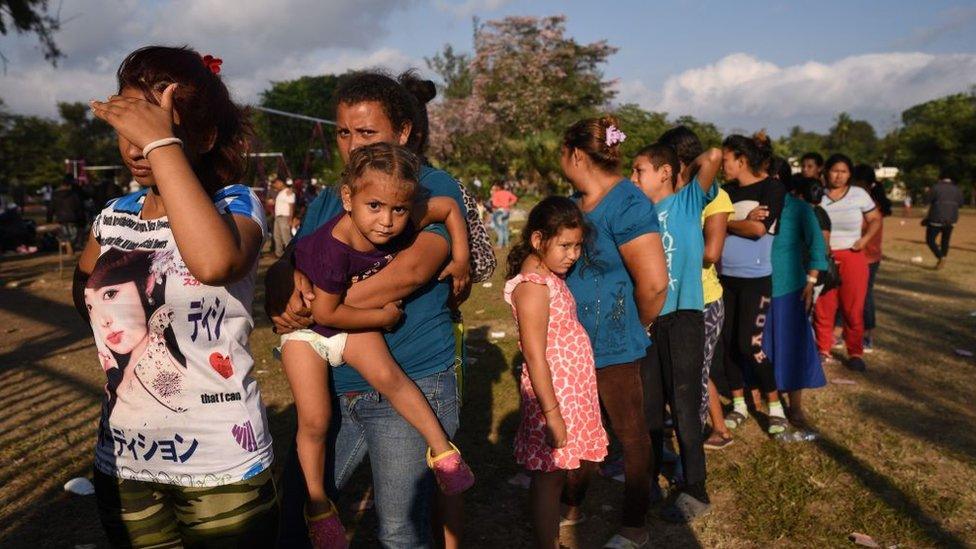
Migrants taking part in the caravan to the US queue for food in Oaxaca, Mexico on Tuesday
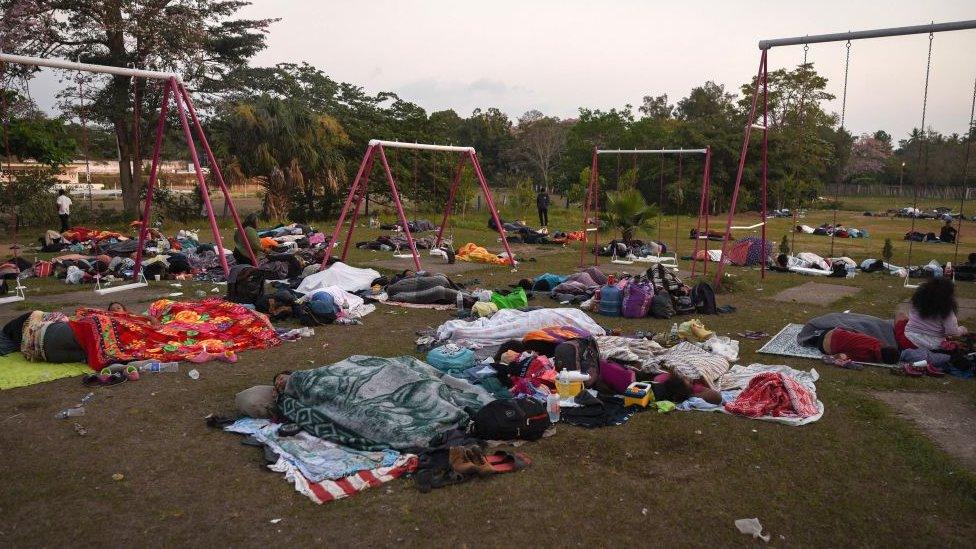
When is Trump going to build his wall?
Constructing a "big, beautiful wall" along the Mexican border was a signature campaign promise for Mr Trump, but so far the plan to erect a new physical barrier has been thwarted by lawmakers and appears to have stalled.
A major government spending bill which he signed last month included $1.6bn for the border wall - far short of the $25bn the White House sought.
Trump: 'These are, like, professional mountain climbers'
And there were strings attached to the funding Congress did approve. Most of it can only be used to repair stretches of the border where there already is a wall, not to build new segments.
Last month the Pentagon confirmed Mr Trump had held "initial" talks with Defence Secretary James Mattis about using some of the Pentagon's budget for constructing a wall.
Allow X content?
This article contains content provided by X. We ask for your permission before anything is loaded, as they may be using cookies and other technologies. You may want to read X’s cookie policy, external and privacy policy, external before accepting. To view this content choose ‘accept and continue’.
But two Democratic senators wrote to the defence secretary on Monday saying his department had "no legal authority" to use its funds for such a purpose.
"Such a controversial move could only be funded by cutting other vital priorities for our service members," wrote Senators Dick Durbin and Jack Reed.
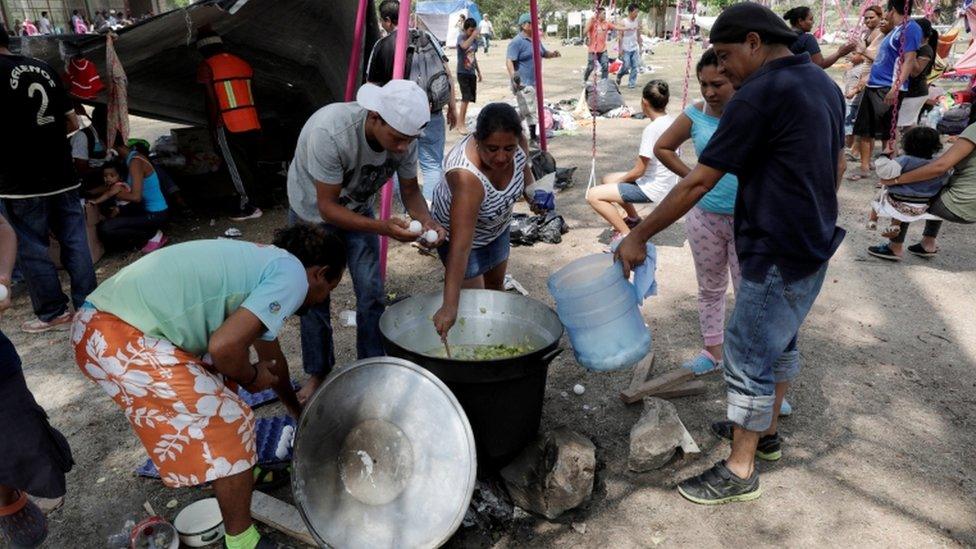
The group has been preparing meals together
In December, US Border Patrol announced arrests at the southern border had fallen to their lowest level since 1971, apparently indicating that fewer people were attempting the crossing.

More on Trump and immigration
The missing - consequences of Trump's immigration crackdown
- Published3 April 2018
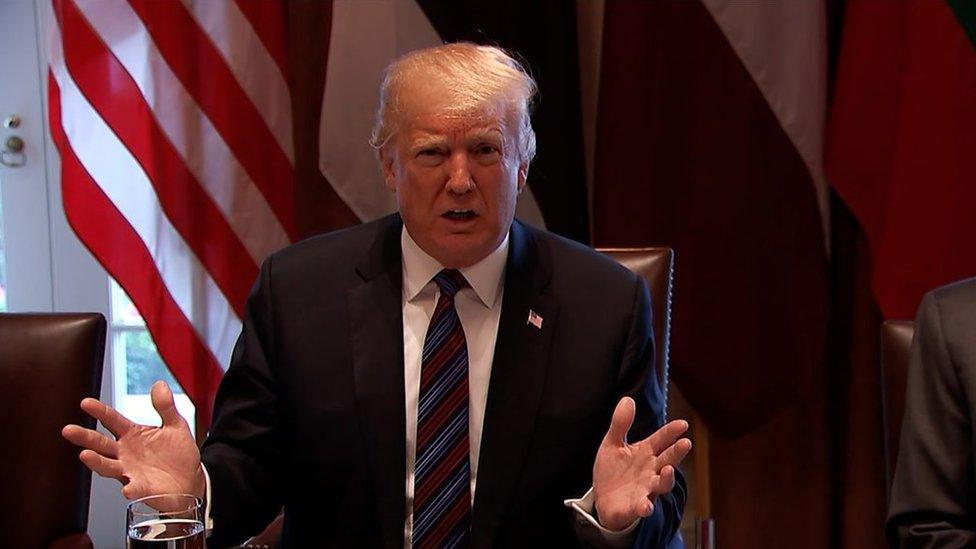
- Published15 January 2018
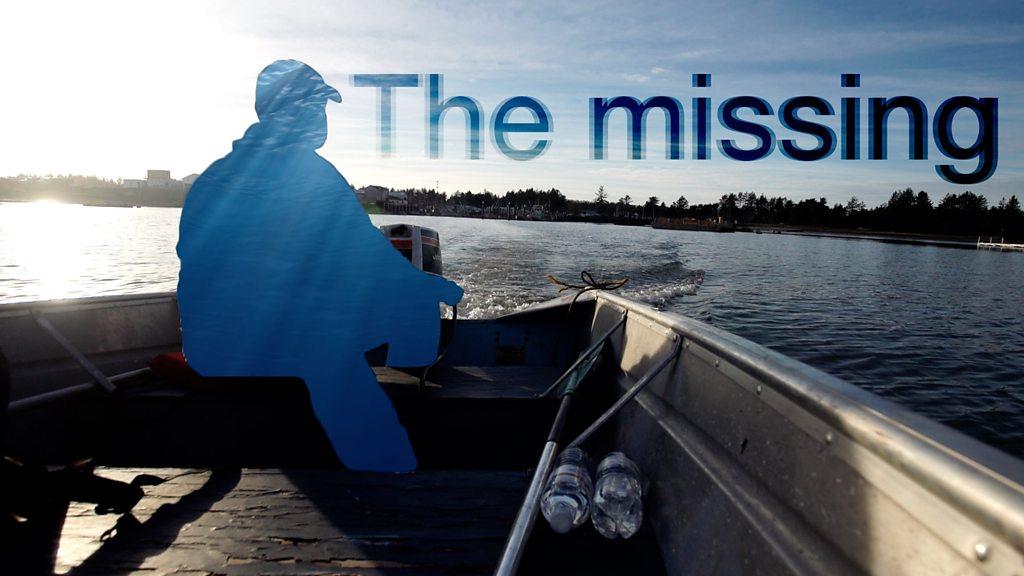
- Published13 March 2018
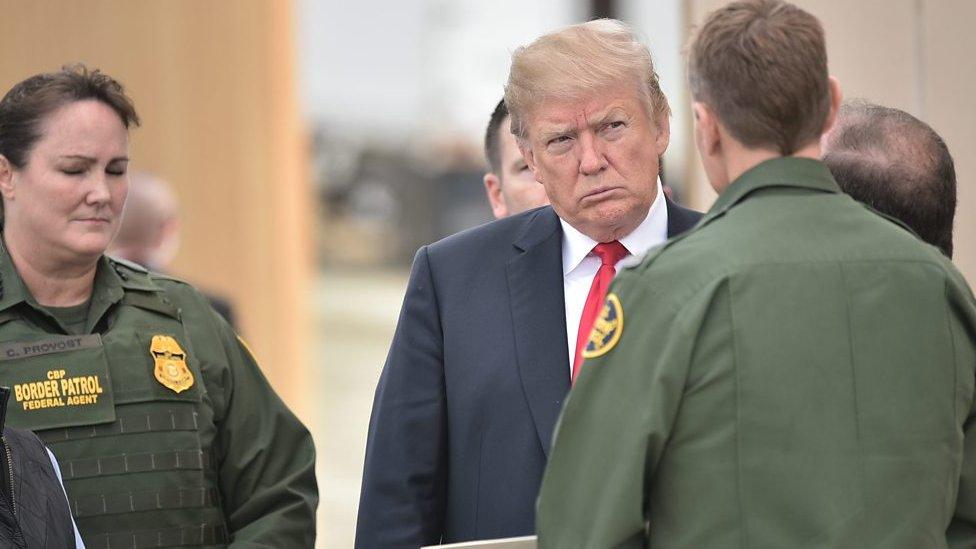
- Published25 January 2018
